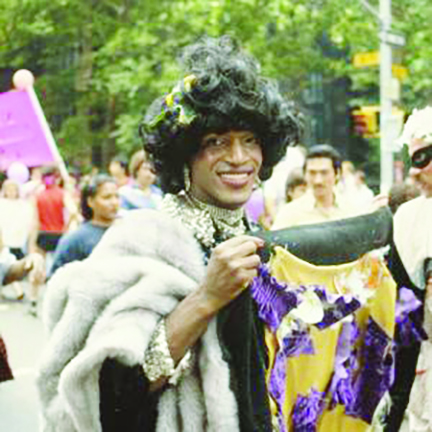By Ivan Sanchez
The Stonewall Riots, which began on June 28, 1969, at the Stonewall Inn in New York City’s Greenwich Village, are widely recognized as the catalyst for the modern LGBTQ+ rights movement. However, the pivotal roles of Black and Latino individuals in this historic uprising are often overshadowed.
The Stonewall Inn served as a sanctuary for many marginalized groups, including Black and Latino LGBTQ+ people who regularly faced discrimination and violence. On the night of the raid, the frustration and anger among patrons, stemming from years of systemic oppression, erupted into a fierce confrontation with police. This clash marked the beginning of six days of protests that would reshape the fight for LGBTQ+ rights.
Among the notable figures in the riots was Marsha P. Johnson, a Black transgender woman whose actions were instrumental in the uprising. Although accounts differ, many believe Johnson was among the first to resist the police, either by throwing a brick or a bottle. Her courage and leadership, alongside her close friend Sylvia Rivera, a Latina transgender activist, were crucial in sustaining the momentum of the riots. Johnson and Rivera later co-founded the Gay Liberation Front and the Street Transvestite Action Revolutionaries, organizations dedicated to supporting homeless queer youth and advocating for LGBTQ+ rights.
Stormé DeLarverie, a biracial lesbian, also played a significant role. Her scuffle with police officers on the first night of the riots is often cited as a key moment that incited the crowd. DeLarverie’s defiance and bravery encouraged others to stand up against the authorities, transforming a routine police raid into a powerful symbol of resistance.
Black and Latino individuals, many of whom remain unnamed, were at the forefront of the Stonewall protests. Their resilience and determination were essential in challenging police brutality and societal prejudice. The visibility and activism of these communities in the aftermath of the riots were crucial in shaping the early LGBTQ+ movement. They ensured that issues of race, gender, and sexual orientation were addressed within the broader struggle for equality.
In the years following Stonewall, Black and Latino activists continued to push for a more inclusive and intersectional approach to LGBTQ+ rights. Despite facing additional layers of marginalization, their contributions have been vital in laying the foundation for a more equitable movement.
The Stonewall Riots were more than a rebellion against police harassment; they were a profound assertion of the right to exist and thrive for all LGBTQ+ individuals, especially those who were most marginalized. Acknowledging the essential roles of Black and Latino participants in this historic event is crucial to understanding its full impact and legacy in the ongoing fight for LGBTQ+ equality.
Copyright 2024 TNTRIBUNE, All rights reserved.


